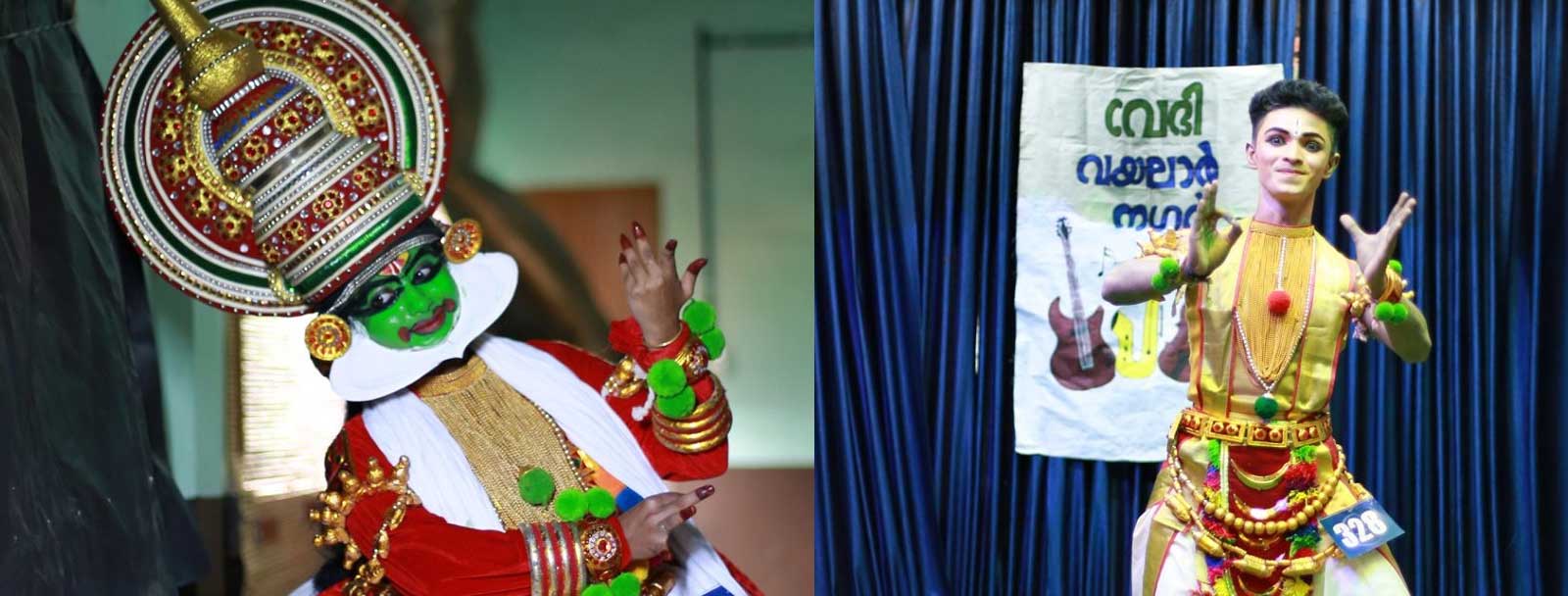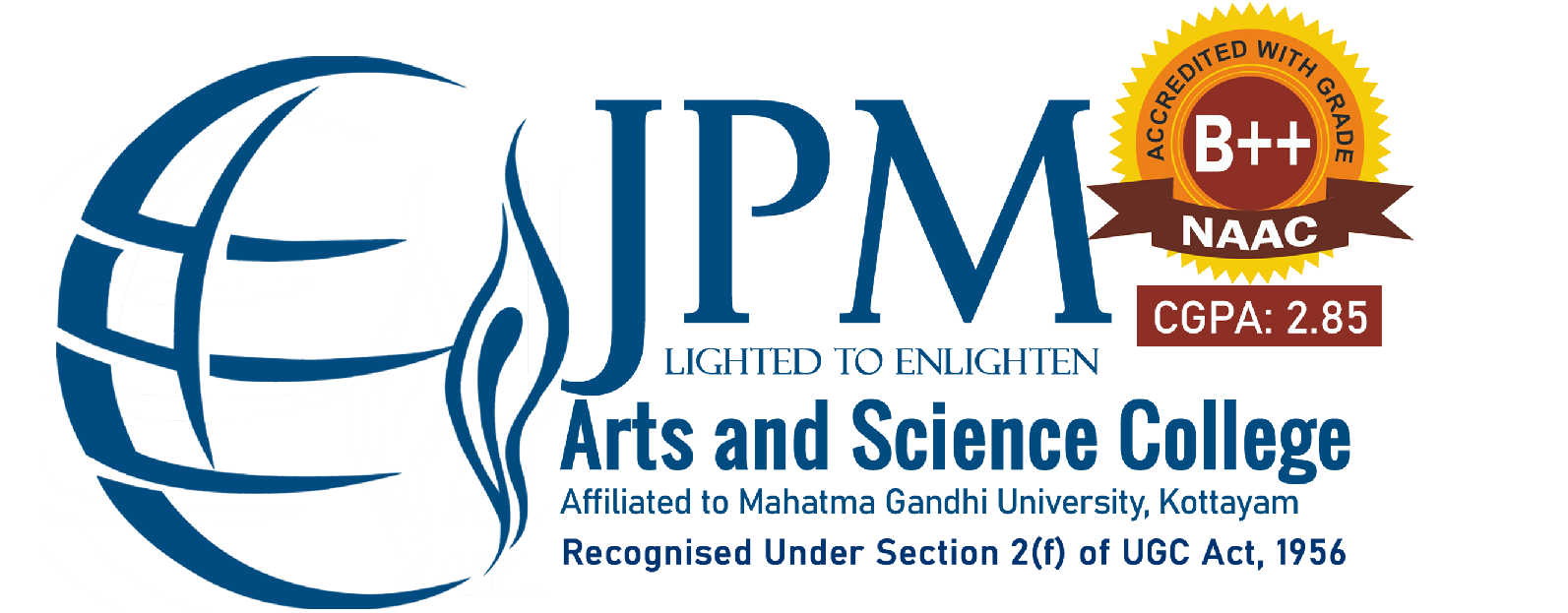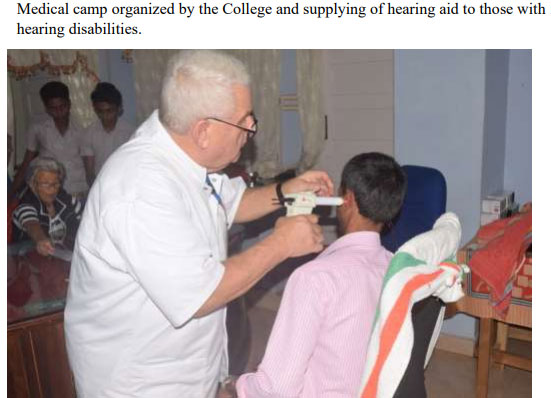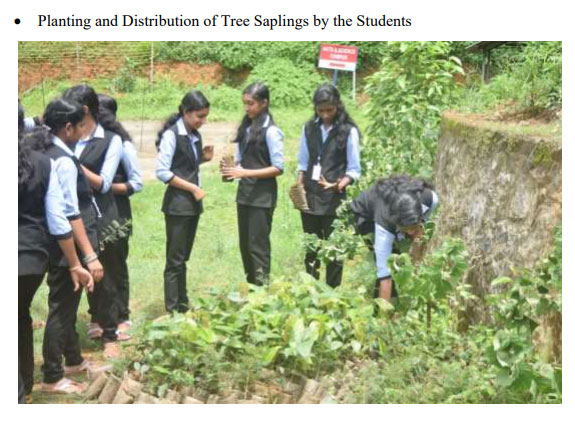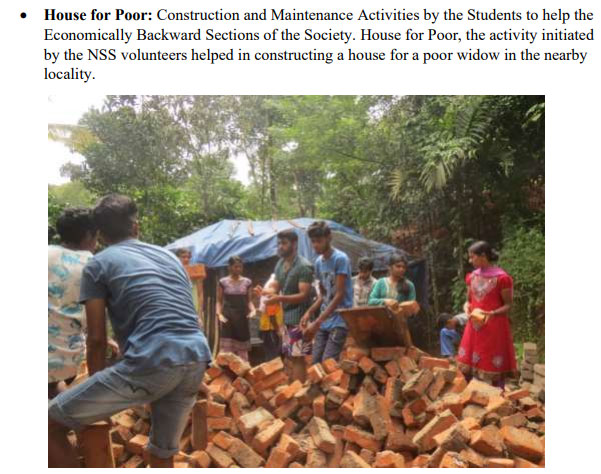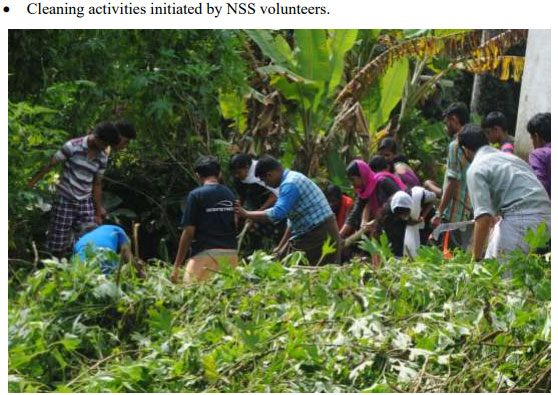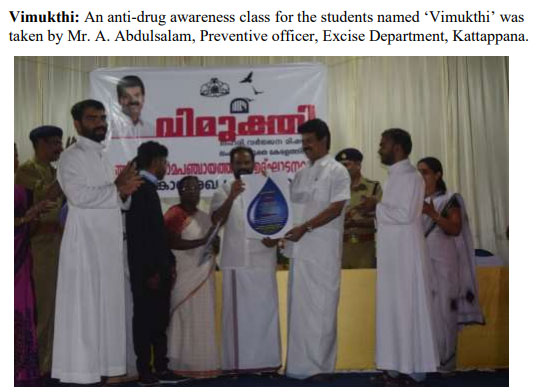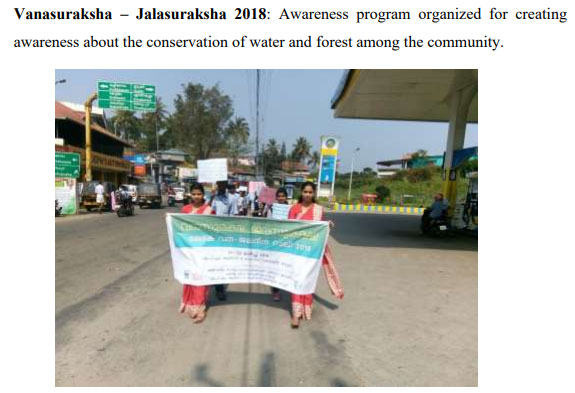The college has always strived to provide an inclusive environment and promote tolerance and social harmony amongst the students and staff members who come from diverse backgrounds. We have students and staff from different socioeconomic, linguistic, regional, communal and cultural backgrounds in our college. The college has always promoted values of tolerance and harmony amongst them and encourages activities that help to cultivate the feeling of togetherness. We conduct various activities under the auspicious of Departmental Associations, various clubs, College Union, College Alumni Association, NCC, NSS etc. with an intention of nurturing the culture of inclusiveness among various stakeholders of the College
Caring for the Minorities The College always cares for the minority sections and deserving students under all categories are provided with various scholarships by Central and State governments and other agencies. Deserving students from economically backward families are provided economic support for procuring study material and other stationery. The college availed different governmental scholarships to the students like E Grants, Scholarships for SC and ST, minority scholarships etc. A list of almost 793 students were benefited by various scholarships. Humane criteria are kept in sanctioning the scholarships. Bright students are encouraged and financially weak students are financially supported through charity. Almost 311 students are so helped with almost Rs.11,106,000/-. Harmony and Amity The College assures a harmonious existence of students from diverse regions, classes, religions, castes, and social and cultural backdrops. The College adheres to the anti-ragging and anti-harassment policy as per the Kerala Prohibition of Ragging Act, 1998. The College have an Anti-ragging Committee and an Anti-ragging Squad to ensure harmony in the College. Policy documents for Anti-ragging and Anti-harassment:

Imparting the message of oneness through celebrating various festivals
The college celebrates festivals of all communities. There are no regional and religious differences in celebrating festivals like Onam, Christmas, Kerala Piravi, Ramadan etc and Arts festival in perfect harmony.
ONAM CELEBRATIONS:
Onam is the chief festival of Kerala and the herald of the New Year. It is also a harvest festival, and falls on the 22nd nakshatra, ‘Thiruvonam’ in the Malayalam calendar month of Chingam, which in Gregorian calendar overlaps with August–September. According to legends, the festival is celebrated to commemorate King Mahabali, whose spirit is said to visit Kerala at the time of Onam. Onam is a major annual event for Malayali people in and outside Kerala. Onam celebrations include Vallam Kali (boat races), Pulikali (tiger dances), Pookkalam (flower Rangoli), Onathappan (worship), Onam Kali, Tug of War, ThumbiThullal (women's dance), Kummattikali (mask dance), Onathallu (martial arts), Onavillu (music), Kazhchakkula (plantain offerings), Onapottan (costumes), Atthachamayam (folk songs and dance), and other celebrations. Onam is the official state festival of Kerala with public holidays that start four days from Uthradom (Onam eve). Though a Hindu festival, non-Hindu communities of Kerala participate in Onam celebrations considering it as a cultural festival.
The festival of Onam is celebrated annually in the College with this as an objective. Onam is celebrated in the college with much verve and enthusiasm by people from all communities in Kerala. As part of the celebrations the students and staff members participate in various games such as ‘sundarikupottuthodal’, tug of war, ‘uriadi’, musical chairs, ‘onappattu’ (group songs associated with onam celebrations), ‘thiruvathirakali’ etc. Contests like ‘Malayali Manka’ and ‘Malayali maman or Kerala Kesari’ (Students in traditional outfits) are conducted, Onam Sandhya (feast) is also organised by various departments of the college wherein all the students and teachers banquet together. All these bring together students and faculties from diverse communities and propagates the divine message of oneness and unity in diversity.
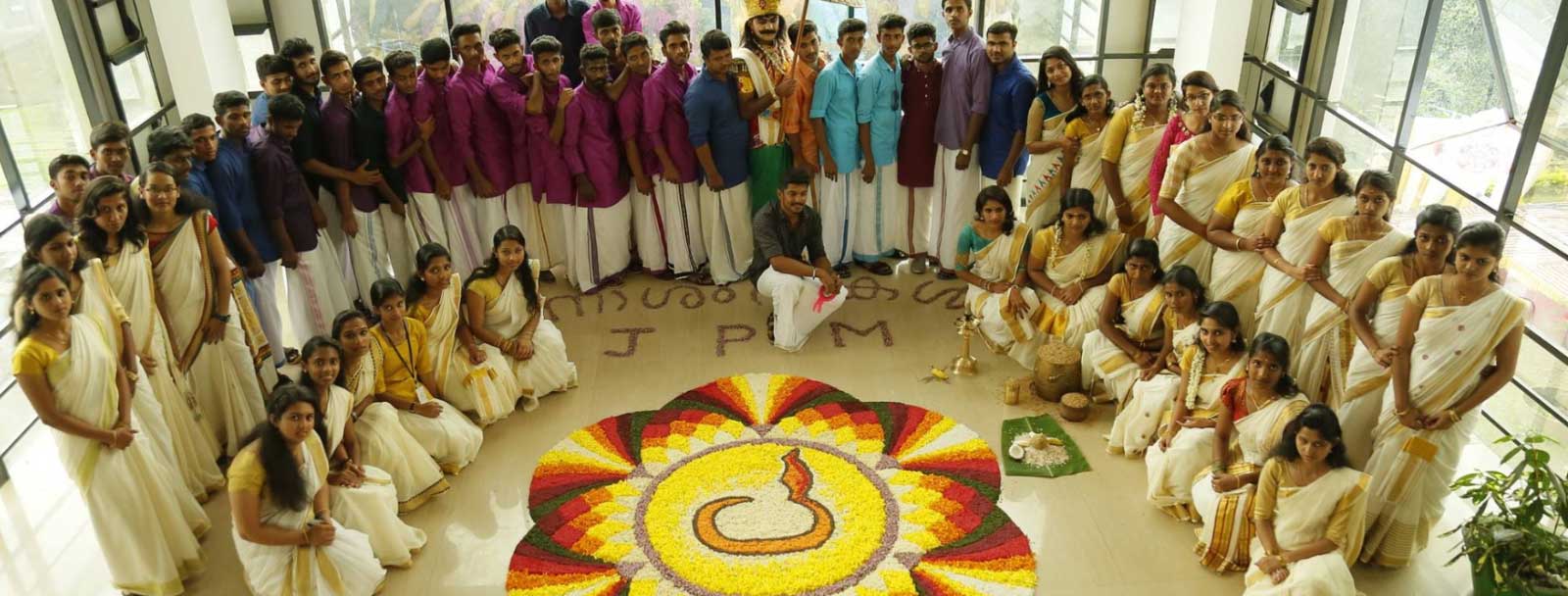
KERALA PIRAVI (NOVEMBER 01)
‘Keralapiravi’ is celebrated annually on 1st September every year since 1956. Prior to 1956, Kerala had been divided into three regions: Malabar, Cochin and Travancore. Malabar comprises the northern coastal region around Cannanore and Calicut. This region had been ruled by the Zamorin of Calicut before being conquered by Tipu Sultan. It was then ceded to the British East India Company after the Anglo-Mysore Wars, and annexed to the British Madras Presidency. The central region comprised the erstwhile Kingdom of Cochin, administered from Thrissur. The southernmost province was the Kingdom of Travancore, based in the city of Thiruvananthapuram. While Cochin had been a vassal state under the British Raj, Travancore Kingdom was administered under suzerainty.
Early in the 20th century, the Mappila Muslims of the Calicut region revolted against the Hindu Zamindars and the British Raj. In the following years, agitations for political rights and a popular government took place in Travancore and Cochin as well. After India was partitioned in 1947 into India and Pakistan, Travancore and Cochin, part of India were merged on 1 July 1949 to form Travancore-Cochin. A popular movement known as Aikya Kerala (United Kerala), for the formation of the State of Kerala, gave an impetus to the reorganisation of the state on a linguistic basis.
On 1 November 1956, the taluk of Kasargod in the South Kanara district of Madras, the Malabar district of Madras, and Travancore-Cochin, without four southern taluks (which joined Tamil Nadu), merged to form the state of Kerala under the States Reorganisation Act. This is the historic background of the Fesival ‘Keralapiravi’.
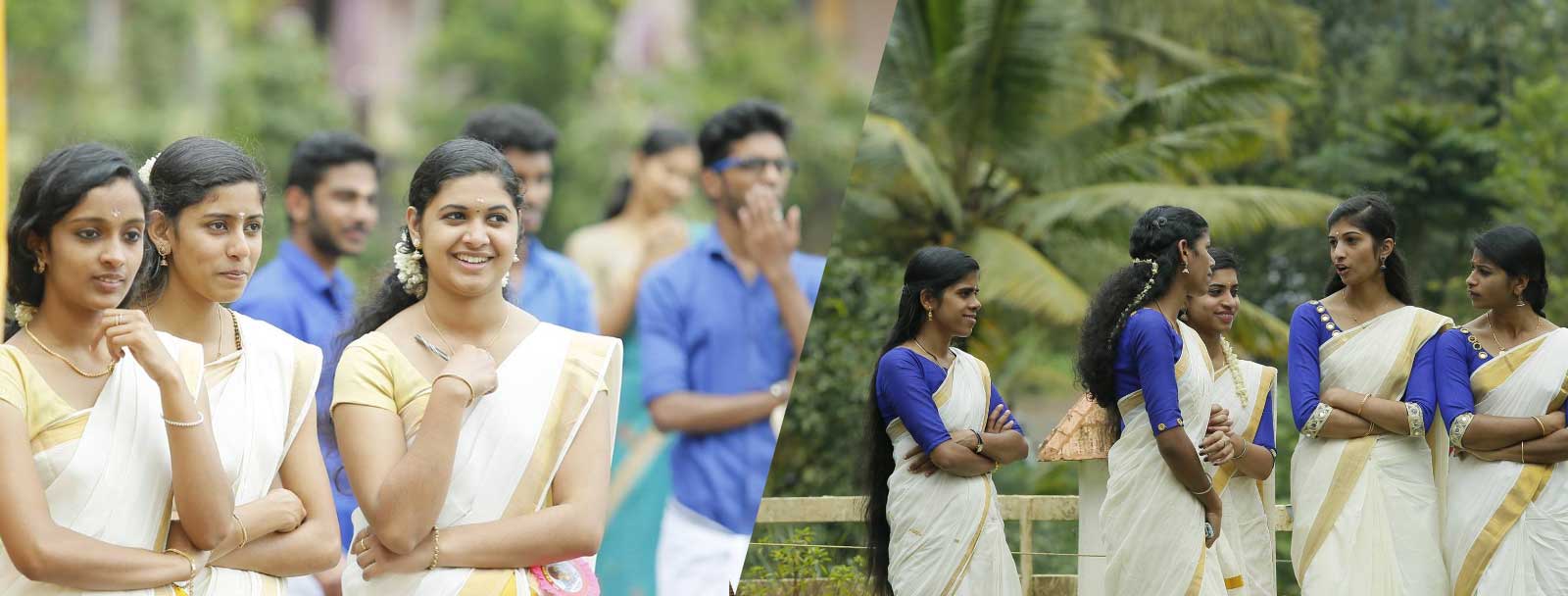
CHRISTMAS
Christmas is also celebrated annually in the college probably on the last working day before closing the College for Christmas vacation. All the staff and students irrespective of their religion, caste, and community participate wholeheartedly in this festivity and they are able to socialize and get to know each other better. Cake cutting, exchange of gifts, concerts, cultural programmes etc. are specialty of Christmas celebrations. These interactions help students and staff members to form lasting relationships with people from diverse backgrounds and imbibe the value of tolerance and harmony.
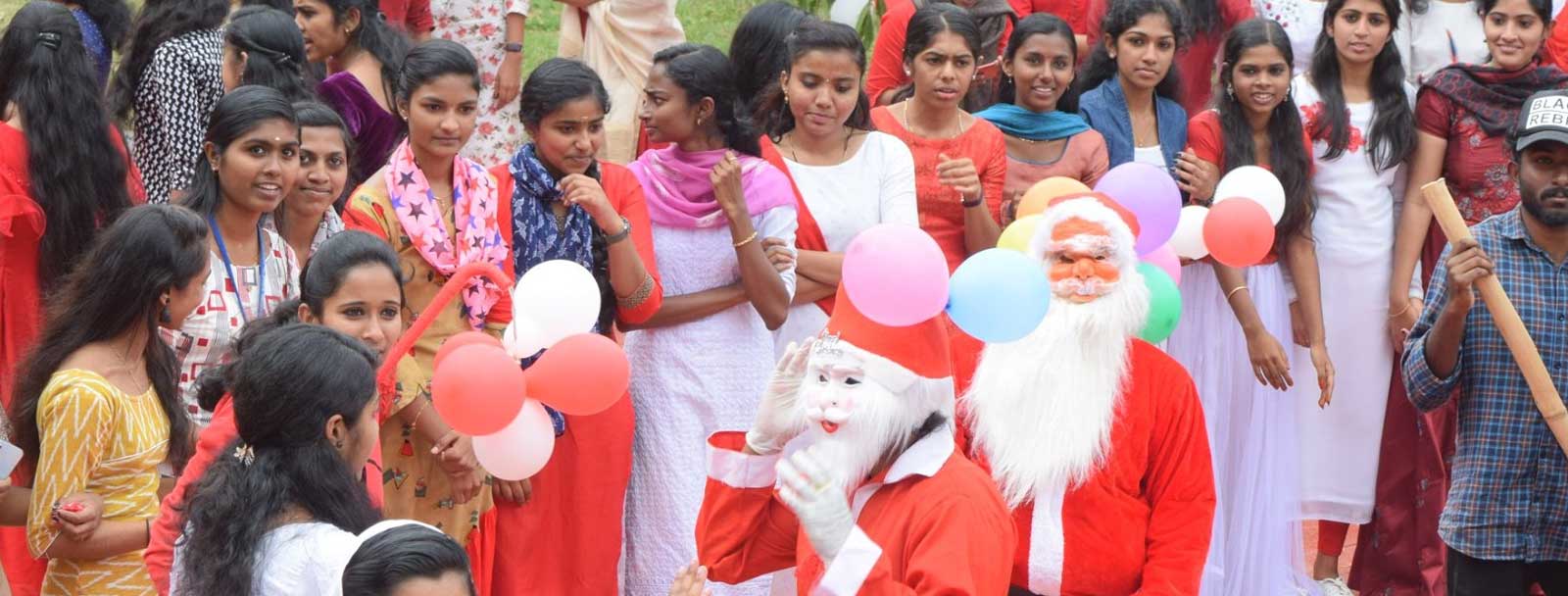
COLLEGE YOUTH FESTIVAL
The College, under the auspicious of the College Union organizes a week long Arts and Cultural festival every year. Various competitions, including music, drama, mime, dance, folklores, writing competitions, elocution, essay and debate competitions etc. are conducted. Students are encouraged to present their items preferably based on national integration, communal harmony, social inclusiveness etc. The recently constituted EBSB club is also taking initiatives in these activities. The Arts club of the college under the supervision of a Teacher Coordinator take the initiative and control of all the programmes.
